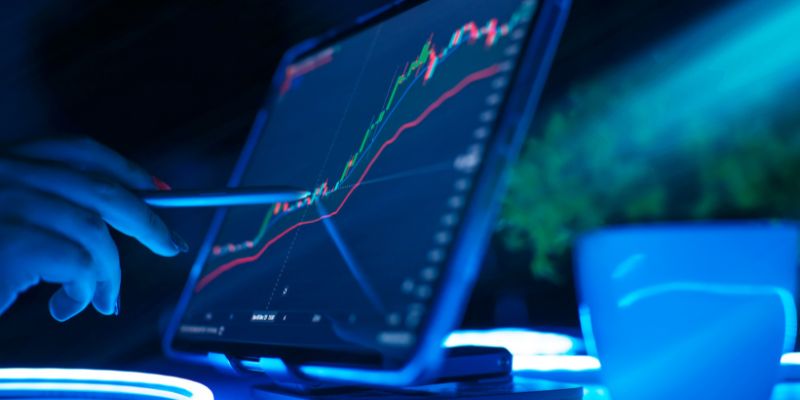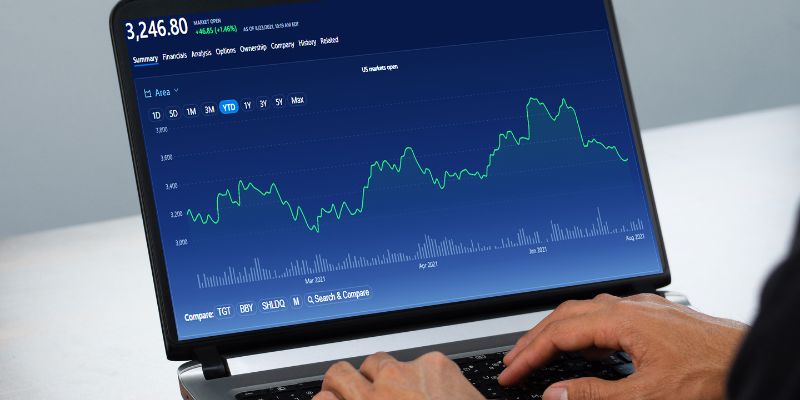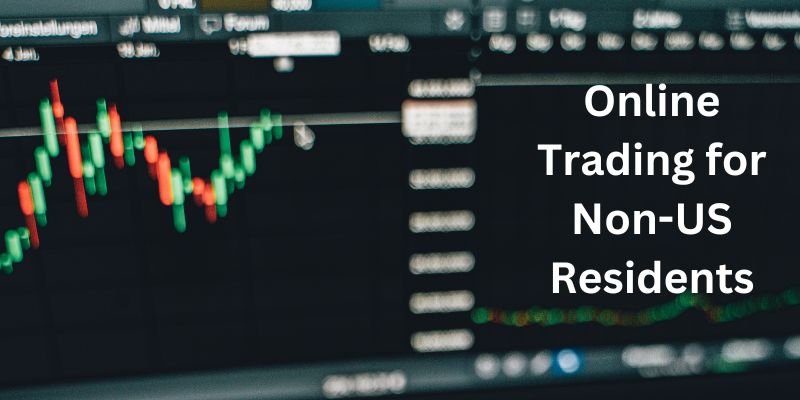Future trading: what it is and how to start
May 18, 2024 By Triston Martin
In future trading, a buyer and a seller agree to purchase or sell an asset at a predetermined price in the future. The assets could be currencies, stocks, bonds, or commodities like corn or oils. Two parties agree on a contract in which one is buying, and the other is selling a specific amount of an asset at an already settled quality and date. The seller is obligated to sell and must buy the asset at the agreed price on the decided date.
Future trading offers investors a quick and cost-effective way to access global financial markets. The security or instrument upon which investors want to trade can hedge or speculate on its price. All they have to do is buy a futures contract, a legal agreement between the buyer and seller in which they can buy and sell an asset at a specific price at a pre-decided time in the future.

The basics of futures trading
As the name suggests, trade will happen in the future. In a future contract, the buyer and seller agree to buy an asset in future at an already decided price. Although future contract offers an opportunity to deliver assets, most of the time, physical doesn't happen. Instead, investors hedge risk their funds or speculate on their price.
In future trading, traders can speculate their money on various commodities and securities. The prominent assets to trade in the future market include bonds, stocks, currencies, livestock, grains, energy, and forests. Most of the time, future contracts happen through centralized exchanges like the Chicago Mercantile Exchange and the Chicago Board of Trade.
How does future trading work?
- Long and Short: Future traders make money when an asset's price rises or falls. An investor takes a long position in a contract when he expects the price of the asset to increase from its current level. If he smells the price decreasing, he will take a short position to secure profit.
- Sizing Things Up: Lot traders take in future trading, which makes the trading experience highly risky. You can lose or gain huge money by taking lots on the original amount you put in for a trade. For example, if a contract shows a unit of 20 metric tonnes, its price increases by $10 per tonne, and the trader will get a profit of $200 (20 tonnes x $10).
- Trading On Margin: In future trading, a margin option is available for investors to borrow money to buy and sell assets. Initially, investors have to put in a deposit known as a margin. They will get leverage on their base margin, which, in the letter, is used to cover the potential loss. Those traders who want to invest more but do not have enough funds use the margin option. But if you are new in future trading, be mindful while using leverage; otherwise, you can lose your whole portfolio.
How do you start future trading?
Understand fundamentals
Future trading is more complex than many financial trades. The availability of leverage options adds extra risk. New investors should do complete research and put in the time and effort to understand it before taking a position in future trades.
Understanding or learning is also theoretical knowledge; to be an expert in the future, you have to start practising with a demo account and trading. Learn and practice understanding what influences the market results in asset price change.
For example, if you want to invest in silver future trades, you have to know how the prices of the grey metal change by inflation, interest rate, industrial production data, or dollar movement. A trader will get much information to build a trading strategy, such as data from new sites, financial magazines, stock market pages, or virtual trading communities.
Master technical analysis
A future trader should have a strong understanding of technical analysis. This will help traders catch market opportunities to buy an asset and manage risks. To understand current market trends, analyze the chart, market volatility, and mark support and resistance levels. Then, make an assumption about whether the price will increase or decrease.
Whether you are a long-term investor or a day trader, a grip on technical analysis is crucial. It helps day traders to find out opportunities at smaller time frames. They can draw trend lines for smaller timescales to identify a profitable trading opportunity. A trader can decide whether it's a short or long trade, calculate the risk and reward ratio or set a stop limit on their trades.

Open a trading account
After understanding the fundamentals and technicalities of future trading, pick up a brokerage with which you can start trading. A lot of options are available for traders to begin future contracts so that they can choose one that meets their requirements. Select a brokerage with low commissions or trading fees.
The trading platform should be easy to use and have various features or functionalities to execute trading fast to improve user experience. Check out that the assets you want to trade are available in future contracts because most brokerages have limited asset options for future trading.
The brokerage account should offer a high margin at lower fees. Consider the customer support service, too. It should be quick to sort out any account or technical problem. Most brokerages offer demo accounts, on which investors can practice trading before trading with real money. Ensure the future brokerage is regulated by the financial authority to keep your funds safe.
The risks of future trading
- Volatile market: In future trading, prices can move suddenly, and it would be different to predict the next moves. Ultimately, traders can suffer losses.
- Low liquidity of some contracts: It would be challenging to take a position or exist in some cases where the liquidity of the future contract is low.
- Complex to understand: Understanding future trading requires a lot of time and effort. Traders should practice a lot to manage trades and monitor the market.
- High Leverage: Most beginners take high leverage without any backup strategy and lose all funds.
- Regulatory challenges: Not all brokerage companies are approved by the financial authority. Consider only those who are approved; otherwise, you can lose your funds.
-
 Investment May 10, 2024
Investment May 10, 2024Online Brokers for Non-US Residents: Top 2 Recommendations and More
This article talks about the problems and challenges non-US residents face when trading online. Plus, our top 2 choices.
-
 Know-how May 16, 2024
Know-how May 16, 2024Unveiling Ancillary Benefits: Beyond the Basics of Employee Perks
Explore the impact of ancillary benefits on workplace culture, employee satisfaction, and retention, highlighting how companies can stand out in the job market.
-
 Know-how Oct 29, 2023
Know-how Oct 29, 2023Choose a Professional real estate agent
this article has collected useful information on how to choose a listing agent. You can get referrals and reviews from teh friends and relatives. The best way is to choose an agent searching locally.
-
 Investment Dec 14, 2023
Investment Dec 14, 2023How to Save for a Down Payment While Renting
Struggling to save money while renting? Discover the best tips and strategies you can use right away to start saving for your future mortgage deposit.
